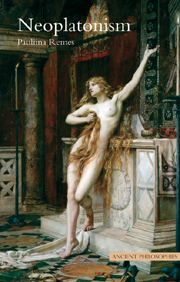Crossref Citations
This Book has been
cited by the following publications. This list is generated based on data provided by Crossref.
2009.
BOOKS RECEIVED.
Church History,
Vol. 78,
Issue. 2,
p.
478.
Holland, Ben
2010.
Sovereignty as Dominium? Reconstructing the Constructivist Roman Law Thesis1.
International Studies Quarterly,
Vol. 54,
Issue. 2,
p.
449.
Sen, Amrita
2012.
Indography.
p.
209.
Townsend, Philippa
2012.
The Encyclopedia of Ancient History.
Tuominen, Miira
2012.
Philosophy of the Ancient Commentators on Aristotle.
Philosophy Compass,
Vol. 7,
Issue. 12,
p.
852.
Townsend, Philippa
2012.
The Encyclopedia of Ancient History.
Arnold, John Charles
2013.
The Footprints of Michael the Archangel.
p.
9.
Veale, Sarah Lynn
2014.
Orientalism in Iamblichus' The Mysteries.
Pomegranate: The International Journal of Pagan Studies,
Vol. 15,
Issue. 1-2,
Pass, David Blair
2016.
Platonism and Planetary Motion: Reason, Balance and Order in Proclus’ Commentary on Republic 617a4–b4.
Apeiron,
Vol. 49,
Issue. 3,
p.
369.
Irwin, Lee
2017.
Reincarnation in America: A Brief Historical Overview.
Religions,
Vol. 8,
Issue. 10,
p.
222.
Brown, Joshua Matthan
2017.
An apophatic response to the evidential argument from evil.
International Journal of Philosophy and Theology,
Vol. 78,
Issue. 4-5,
p.
485.
Peltonen, Tuomo
2017.
Spirituality and Religion in Organizing.
p.
1.
Janowitz, Naomi
2018.
Ancient Ideologies of Ineffability and Their Echoes.
Signs and Society,
Vol. 6,
Issue. 1,
p.
45.
Valencia Marín, Estiven
2018.
Metafísica Plotiniana de la luz: perspectiva teórica en el arte cristiano Escolástico.
Cuestiones Teológicas,
Vol. 45,
Issue. 104,
p.
463.
2019.
Dreams, Virtue and Divine Knowledge in Early Christian Egypt.
p.
206.
Neil, Bronwen
2019.
Dreams, Virtue and Divine Knowledge in Early Christian Egypt.
p.
169.
2019.
Dreams, Virtue and Divine Knowledge in Early Christian Egypt.
p.
185.
2019.
Plotinus' Legacy.
p.
231.
Neil, Bronwen
Costache, Doru
and
Wagner, Kevin
2019.
Dreams, Virtue and Divine Knowledge in Early Christian Egypt.
Wagner, Kevin
2019.
Dreams, Virtue and Divine Knowledge in Early Christian Egypt.
p.
116.



